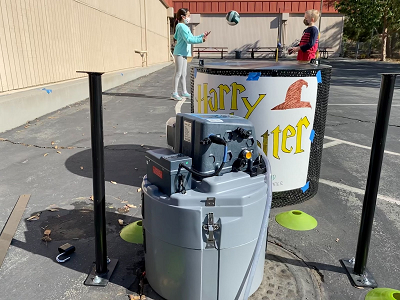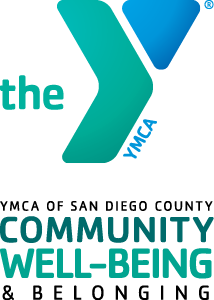As we navigated the reopening of schools, the YMCA of San Diego County's Expanded Learning Programs in elementary schools underwent tremendous changes. Ready to welcome back students in a safe manner, YMCA of San Diego County was part of a pioneering study that changed the course of COVID-19 monitoring for public schools across the region.
The County of San Diego, researchers, and national health organizations worked together to implement the Safer At School Early Alert (SASEA) system, an alternative technique to monitor the presence of COVID-19 among public school districts. SASEA, led by Rebecca Fielding-Miller, PhD, assistant professor at the Herbert Wertheim School of Public Health and Human Longevity Science at UC San Diego, allows schools to timely control transmission outbreaks and safely continue in-person programs and activities.
Expanded Learning Programs were some of the only in-person programs that were offered in financially disadvantaged communities where access to stable technological resources was challenging. By participating in the SASEA study, YMCA of San Diego County served as a catalyst to ensure COVID protocols were exceptionally effective and mitigate the spread of COVID-19 in school sites during the reopening process.
By taking samples of wastewater from the sewer and collecting swabs from commonly touched surfaces each day, schools were able to immediately detect the presence of COVID-19 on campus. Through testing, infected individuals were then identified and quarantined to prevent infections from spreading widely, according to the Safer At School Early Alert website.
“The Safer at School Early Alert system’s core mission is to ensure that every child, and their family, feels safe at school during the COVID-19 pandemic regardless of their neighborhood, background or financial status,” said Fielding-Miller.
 SASEA: The silent but powerful COVID-19 case detector
SASEA: The silent but powerful COVID-19 case detector
According to the “Wastewater and surface monitoring to detect COVID-19 in elementary school settings: The Safer at School Early Alert project” report, UC San Diego researchers and scientists modeled SASEA after the university’s Return to Learn program for implementation in TK-8 schools and child care centers. SASEA serves as an additional tool to identify the presence of COVID-19 cases while vaccine mandates, mask-wearing, and on-site testing requirements were enforced. The Return to Learn wastewater and surface monitoring component in university residences detected 85% of all diagnosed infections among college students.
SASEA was introduced to nine San Diego area public elementary schools, which was determined by the amount of social activities taking place on campus. Daily surveillance took place in classrooms during late 2020 to early 2021.
From data collected across the nine sites, SASEA was able to identify up to 93% of on-campus COVID-19 cases. For public school sites across the region, this unique monitoring system offered a promising future for a safer and controlled reopening process.
How were YMCA of San Diego County’s Expanded Learning Programs involved?
Many of San Diego’s families, especially those who worked essential jobs, relied on YMCA of San Diego County to provide in-person learning and enrichment opportunities for their children in a trusted, accessible, and safe place during this public health crisis.
Our Expanded Learning Programs were active in three of the nine schools that implemented the SASEA system, allowing para-educators and staff to safely welcome back children into the classroom and continue to uplift students through in-person activities. With vaccine, mask, and testing protocols already in action, YMCA of San Diego County will continue to work alongside school districts to ensure children are provided with a safe, enriching, and supportive environment.
Status update: As of January 2022, Dr. Rebecca Fielding-Miller, lead scientist of the SASEA study, has been awarded a National Institutes of Health grant to continue and expand this innovative study research.


